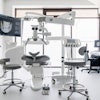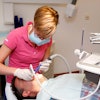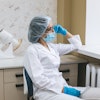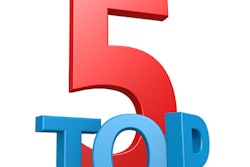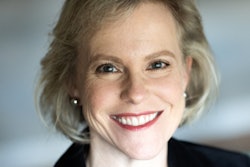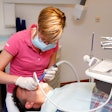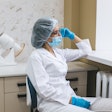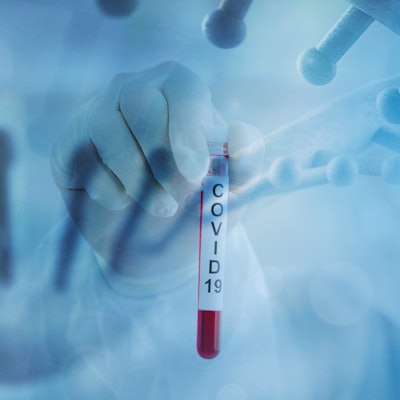
Amanda Hill, RDH, has worked for 25 years in the field of dental hygiene. Now working primarily as a temporary hygienist for several practices in the Norfolk, VA, area, she is preparing to embark on a new day in dental hygiene.
Hill knows things will be different when practices in Virginia reopen their doors.
"As a hygienist, I've ordered a face shield for myself and I've ordered an infrared thermometer," she said. "With me temping, I don't know how every office is going to work. Not fully understanding what procedures they may have in place, I want to make sure that I set up my own procedures to make sure some good choices are being made.
Hill said it's a simple choice for her to stock up with her own supplies before she steps into a practice.
"I'm going to make sure that I have the proper [personal protective equipment (PPE)] before I walk into any practice," Hill said. "I have no problem getting things that make me feel more comfortable. What do I need to do safety-wise so that I'm not distracted whenever I walk into a practice? I'm going to put in place what I can because those are the only things that I can control."
Control is a key word for many registered dental hygienists right now, and some believe those who control when dental practices can reopen are misguided. Hygienists throughout the country are raising concerns about whether now is really the right time to return to practice. From Colorado to Nebraska to Oklahoma, there is a realization that the dental industry has to get back to business at some point -- but is this really that point? A letter from a North Dakota hygienist speaks volumes.
With questions about PPE and worry about infections from COVID-19 not slowing in the same manner as the number of cases in their respective states, hygienists are wondering what dental hygiene will look like in the coming days and weeks.
Simply put, what is the new normal? And, whatever it is, is it something that dental hygienists are confident will be good for them, personally and professionally?
Hill told me that the thought of working without an ultrasonic scaler in an effort to slow aerosol spray is tough for her.
"My heart aches to do this without an ultrasonic scaler," Hill said. "I know that an ultrasonic scaler reduces that biofilm burden where a hand scaling doesn't do it. Is good enough good enough? Or is good enough substandard, and am I just putting Band-Aids on? But are Band-Aids better than nothing? This is the debate I've been having in my brain."
"I understand the science," she continued. "I get the concern, but I balance this out with, how are we going to serve people in the best way we know how right now? I think the key thing for me is to know that I, personally, am doing everything I can to stay safe."
Across the country, Josh Nagao, DDS, runs a full fee-for-service practice in Tucson, AZ. His practice has been open for emergency patients throughout the crisis, but he has also been readying his business and team for the upcoming day when they can reopen on a full scale.
Part of that preparation has involved the safety precautions he will likely establish in his practice, as well as preparing mentally for what changes could come. It hasn't been easy, but Dr. Nagao knows there is a lot riding on his business.
"First and foremost, I consider myself a healthcare provider," Dr. Nagao told DrBicuspid.com. "The patients and my staff come [first]. If I can effectively and safely see patients and keep the business open, I'm going to do that. I have seven families who rely on this business for mortgages, car payments, and keeping food on the table. For me, I can't just shut the door until the coast is clear, per se. For me, I'm a doctor. Doctors in the emergency room aren't saying, 'Hey, I'm scared of this and I'm not going in.' For me, that part was easy. I'm going to go in and see patients and take every precaution I can to keep patients and staff safe by using the research out there and navigate the storm."
This isn't just about PPE, said Dr. Nagao, who has used his dental office's 3D printing technology to manufacture masks for local healthcare workers.
"It's not just their physical safety. It's their mental safety and their financial safety," Dr. Nagao said of his team. "There are a lot of different factors that are affected here."
Rachel Wall, RDH, the founder and CEO of Inspired Hygiene, said she is hearing mixed opinions from hygienists about their return to work. She also said much of it has to do with the level of planning that Dr. Nagao mentioned.
"I'm seeing kind of 50-50. Some are eager and ready to go back. Some are very nervous," Wall said. "I think it has a lot to do with their practice owner's level of planning. That includes when the practice owner presents a plan as far as PPE, scheduling, and communication, and that it's apparent that it has been well thought out, as well as that they are pursuing ways to reduce aerosols. When they have those things in place, or they have at least researched it, the hygienists are way more likely to feel comfortable going back."
Hill, meanwhile, sees part of her new normal as wearing a scrub cap for the first time in her career. She'll shower immediately when she gets home, instead of taking some time to ease into the evening. She believes she will also wear a mask the entire time she is in the practice. The days of talking to the patient with the mask pulled down are over, she thinks.
"I feel like that connection with the patient is the one thing that I'm best at as a hygienist, understanding where they are and meeting them where they are," she said. "So much of that is done through my expression and interaction, so I'm sad about that, but I understand the inherent risk."
Risk is the key word, but Hill believes if dentistry is going to continue to put itself in the front of the oral-systemic connection discussion, helping patients take care of their oral health must be done.
"There is so much about hygiene that I have tried to educate patients about, including preventive maintenance and how important it is," Hill explained. "I feel like by letting this go and go that we're almost saying it's not as important as we have been saying it is."
The comments and observations expressed herein do not necessarily reflect the opinions of DrBicuspid.com, nor should they be construed as an endorsement or admonishment of any particular idea, vendor, or organization.
